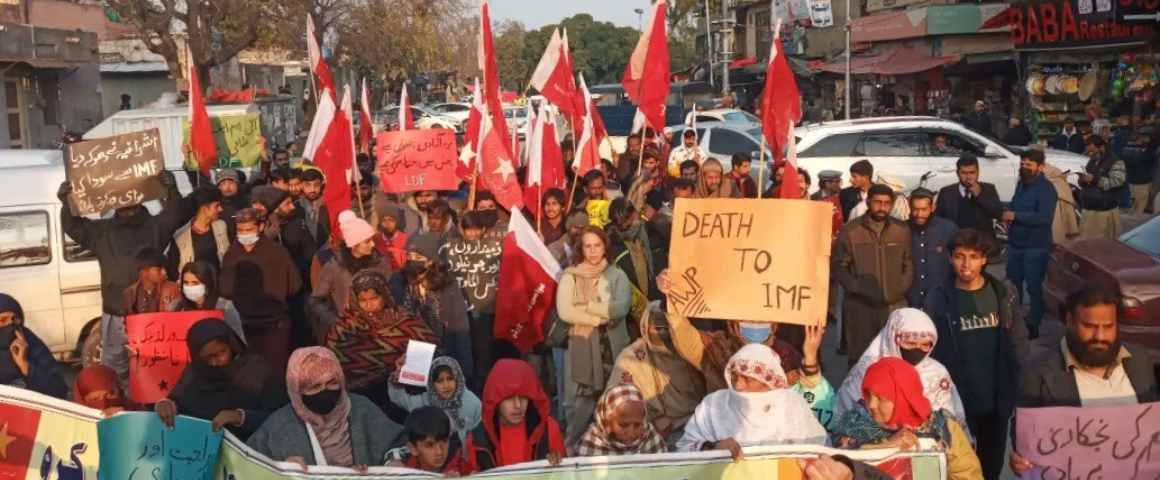Pakistan’s government is planning to lease 4.4 million acres of land to investors from China, Saudi Arabia, UAE, Qatar and Bahrain, to create 2,000 large-scale farm developments. The Pakistani army will provide management, coordination and technical support to the project, which is organized through the recently formed Special Investment Facilitation Council (SIFC).
Progressive movements in the country are concerned that the plan will turn large swathes of agricultural land over to foreign capitalists and corporate giants. They are also alarmed that it will increase the involvement of the military establishment in economic affairs; the military already occupies 12 percent of the land in the country.
Akhtar Hussain, president of the Awami Workers Party (AWP), warned that “the capture of agricultural resources by military-supported corporations and real estate tycoons will deprive millions of peasants, farm workers and rural labourers of access to land, leading to further poverty, displacement and exploitation.”
Hussain said that agriculture is the most important segment of the national economy, contributing over 20 percent to the GDP and providing jobs to almost two-thirds of the population, yet peasants and rural workers remain neglected. According to the Global Hunger Index, growing hunger in rural areas and the massive damage to farmland caused by last year’s climate-change-induced floods is pushing many small cultivators, tenant farmers and sharecroppers into rural wage work. Approximately 80 percent of the rural population is now landless and rural poverty remains above 50 percent.
The AWP says that to resolve food insecurity and rural poverty, the government should introduce a new agrarian policy, abolish big landholdings, distribute land among landless peasants and fix land ownership to 100 acres of rainfed and 50 acres of canal-fed land per family. The party also calls for state and collective agriculture farming through cooperatives; incentives and financial assistance to peasants and small growers for the use of modern technology, seeds and agri-inputs; and for small growers to have cheaper credit, crop insurance and a link to markets so that the role of middle distributors is eliminated.
In addition to agrarian reform, progressive forces are calling for urban land reform. The AWP says big real estate moguls should be stripped of the lands they have grabbed, which should then be redistributed among people living in katchi abadis (informal settlements or squatter areas), migrant workers and other segments of the urban poor.
[Photo: protest demanding land reform and action on food inflation, January 2023]
Get People’s Voice delivered to your door or inbox!
If you found this article useful, please consider subscribing to People’s Voice.
We are 100% reader-supported, with no corporate or government funding.




